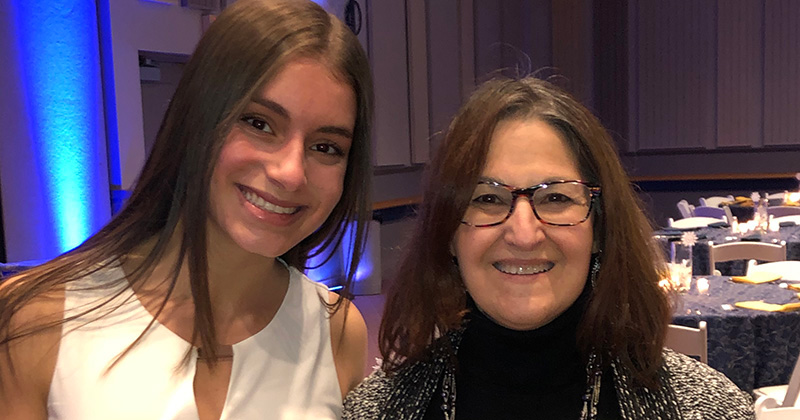


Five reasons to become a mentor/mentee
Photo by Lerner Career Services Center January 23, 2020
UD career expert on the value of being part of a mentoring pair
Editor’s note: The University of Delaware’s Sarah Baker Andrus, who is assistant director of the Alfred Lerner College of Business and Economics Career Services Center, shared her top five reasons to become a mentor or mentee.
Much has been said and written about the importance of mentors for a successful career. The most obvious is that mentors can be especially helpful in connecting mentees to career opportunities and guiding them through the job search process.
But if you see the mentoring relationship as simply a means to an end — either as a way to help the mentee find a job or as a means for the mentor to access ready talent — then you are missing out on the richness of a mutually beneficial partnership that can pay dividends over the course of both of your careers. Seventy-five percent of executives say mentoring was critical to their career development, according to a survey by the American Society for Training and Development.
Like anything of value, good mentoring relationships begin with a common understanding of expectations, goals and commitment. With that as a foundation, these are some of the long-term payoffs people experience by investing time and attention into the mentor/mentee relationship:
1. An external viewpoint. For mentors, a younger mentee can offer valuable insights or help with strategies for navigating the challenges of a multigenerational workforce. For the mentee, a trusted mentor can provide candid direction for how to start off on the right foot in a new job or how to handle your new boss’s management style.
2. Support and encouragement. Unsure about your next step when invited to apply for a new role? There could be reasons to do it and there could be reasons not to. If you are early in your career, a mentor is a great sounding board for these decisions and can help you identify issues you may have missed. If you’re a mentor, a mentee can often be just the voice of optimism and hope that you need to keep you from falling into the trap of cynicism so that you can keep those creative juices flowing and be open to innovation.
3. Forewarnings. How great would it be if you didn’t step in it? While it’s true that we can learn from our mistakes, it’s equally true that it is best to avoid them altogether and take the lesson up front. Getting insight from someone who has walked the path you are on can be enormously helpful. And the novelty of a mentee’s perspective is that they can often see danger signs that perhaps the “been there, done that” eyes of a mentor may miss.
4. Advancement opportunities. We all know a mentor can help you get ahead in your career, particularly in the early stages. The truth is that this can continue throughout your career and go in both directions. When I was leading a campus recruiting team, I began to mentor one of our field managers and helped him build one of the strongest teams in the country. Later, as he advanced in his role, he became a champion for the value of the work I was doing and my advocate as I proposed new programs. While the relationship began with me in a senior role, within a very few years he had worked himself into a position to make a big difference in my career.
5. Friendship and trusted counsel. Here’s a benefit I never anticipated from my mentoring relationship with the young man I mentioned in No. 4 above: We have developed a true friendship and have become among one another’s most trusted advisers in work and in life. And, while that’s special, it’s not unusual.
For alumni interested in connecting with other alumni or students in their industry, sign up and explore the UD Career Acceleration Network (UD CAN). For professionals hoping to inspire a Lerner student, join the mentoring movement by registering as a mentor in the Lerner Executive Mentoring Program. Qualified mentors will be matched one-on-one with a Lerner student mentee in February 2020.
Contact Us
Have a UDaily story idea?
Contact us at ocm@udel.edu
Members of the press
Contact us at 302-831-NEWS or visit the Media Relations website

